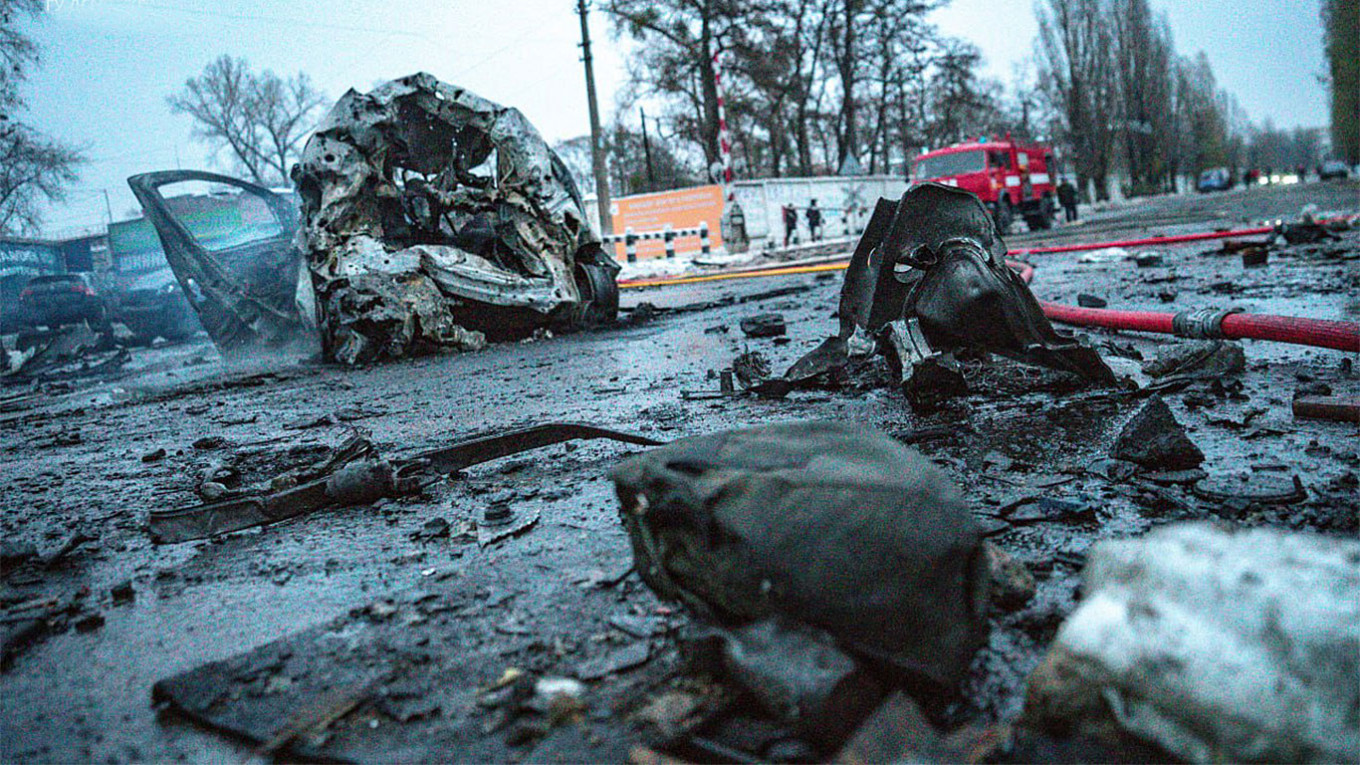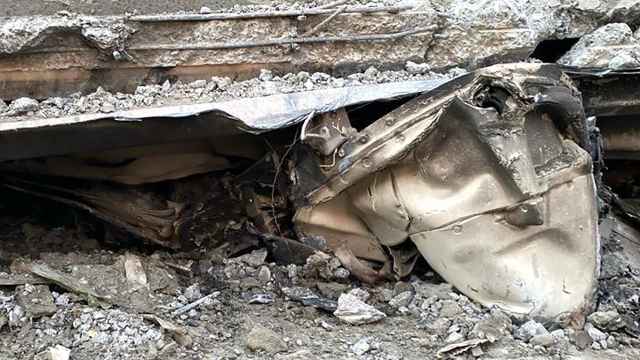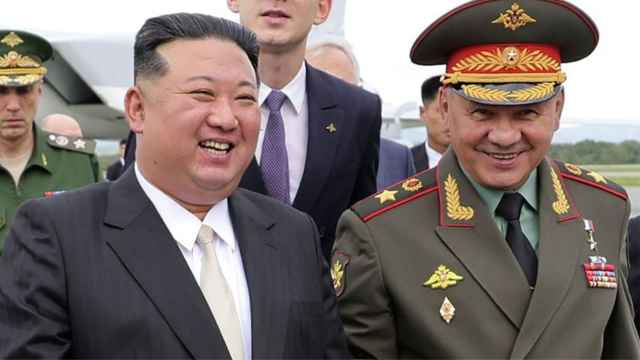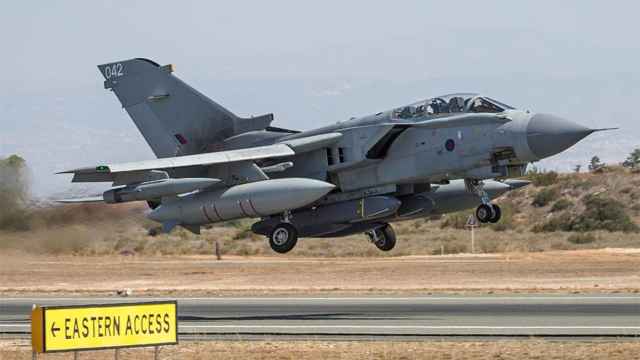Russia has pounded Ukraine with newly made cruise missiles in recent weeks, British weapons researchers said Monday, suggesting that production has continued months after Western governments imposed unprecedented sanctions on Moscow.
The Conflict Armament Research (CAR) said its experts were in Kyiv on Nov. 23 when Russia fired around 70 cruise missiles.
Analysis of two of the missiles’ remnants showed them to be Kh-101 air-to-surface guided weapons with marks indicating they were produced between July-September and October-November 2022, CAR said. Two other Kh-101 remnants that struck Kyiv in June and October had been produced in 2018 and 2019, according to the investigative team.
The short turnaround simultaneously demonstrates Russia’s ability to produce guided weapons despite sanctions on its tech sector as well as its stockpile challenges, the researchers said.
Previous CAR analysis had shown Kh-101 cruise missiles to be heavily reliant on U.S. and Europe-based components and technologies.
Russia has fired thousands of long-range cruise missiles as well as short- and medium-range ballistic missiles since invading Ukraine in February.
U.S. Defense Secretary Lloyd Austin claimed on Nov. 23 that trade restrictions would slow down Russia’s ability to produce precision-guided weapons.
“Those claims have been made since April, so we’re just pointing to the fact that these cruise missiles being made so recently may be a symptom of that, but it’s not a certainty,” Damien Spleeters, who led CAR’s investigation, told The New York Times.
Russia may be using newer munitions alongside older ones amid problems with stockpiles, an unnamed U.S. defense intelligence analyst was cited as saying.
Militaries often use older munitions before deploying newer ordnances because they make up most of their stockpile, according to NYT.
Russian media has reported that munition plant workers have been ordered to work overtime to produce more ordnance.
A Message from The Moscow Times:
Dear readers,
We are facing unprecedented challenges. Russia's Prosecutor General's Office has designated The Moscow Times as an "undesirable" organization, criminalizing our work and putting our staff at risk of prosecution. This follows our earlier unjust labeling as a "foreign agent."
These actions are direct attempts to silence independent journalism in Russia. The authorities claim our work "discredits the decisions of the Russian leadership." We see things differently: we strive to provide accurate, unbiased reporting on Russia.
We, the journalists of The Moscow Times, refuse to be silenced. But to continue our work, we need your help.
Your support, no matter how small, makes a world of difference. If you can, please support us monthly starting from just $2. It's quick to set up, and every contribution makes a significant impact.
By supporting The Moscow Times, you're defending open, independent journalism in the face of repression. Thank you for standing with us.
Remind me later.






